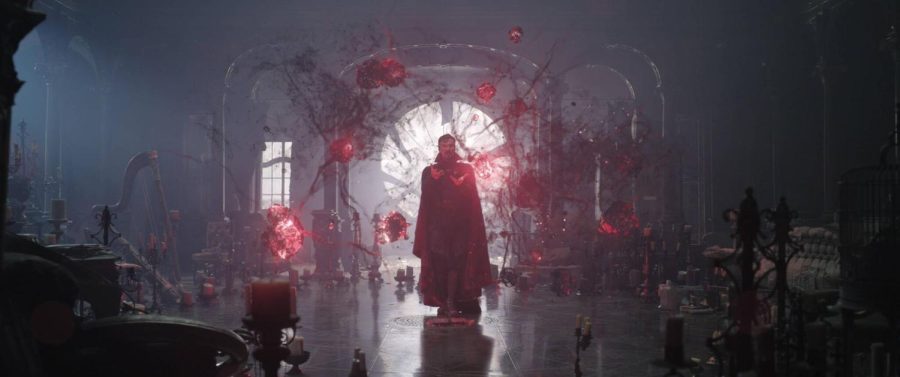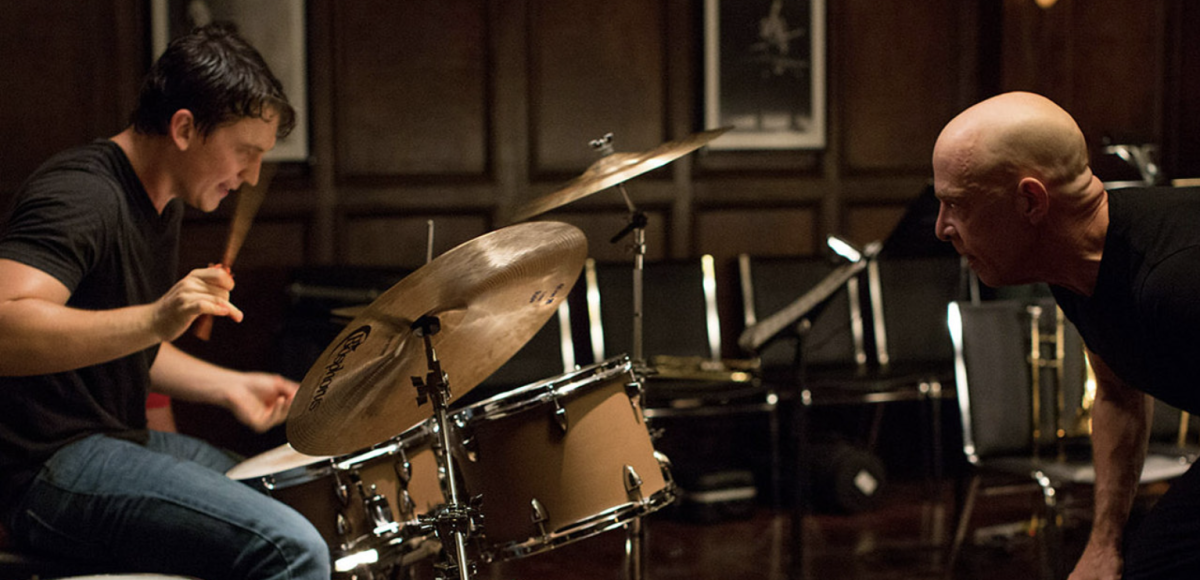Doctor Strange in the Multiverse of Madness: A Mad Sequel
June 3, 2022
If you were to watch 2016’s Doctor Strange and immediately after watch 2022’s Doctor Strange in the Multiverse of Madness, the latter would be nearly incomprehensible. Not because Doctor Strange in the Multiverse of Madness is inadequate as a sequel, but because, as is becoming increasingly common among Marvel movies, Doctor Strange in the Multiverse of Madness is more a product of Doctor Strange’s various appearances since 2016 than a sequel of Doctor Strange itself.
In fact, Doctor Strange in the Multiverse of Madness is arguably a sequel to Spider-Man: No Way Home, the movie that introduced the concept of multiversal travel into the Marvel Universe. In Multiverse of Madness, Doctor Strange, played by Benedict Cumberbatch, recovering from the events of No Way Home encounters a new multiversal threat. He spots a girl — a girl who had just appeared in his dream — being chased through the streets of Manhattan by a many-tentacled, one-eyed monster. When the monster is dispatched, the girl, named America Chavez and played by Xochitl Gomez, explains that she is from another universe and that Doctor Strange’s dream was not merely a dream, but the experience of an alternate version of himself from another universe.
Shocked by this revelation, Doctor Strange must act quickly to protect America from a mysterious force pursuing her across the multiverse to acquire her inexplicable ability to teleport between universes. Strange seeks the help of Wanda Maximoff, played by Elizabeth Olsen, only to learn that she is the one chasing America, hoping to retrieve her twin sons from another universe. Doctor Strange cannot let that happen because for Wanda to acquire America’s power, America would have to die.
If some of these details elude you, you couldn’t be faulted. The many references made to events and characters from other Marvel movies in Multiverse of Madness are often not integral to the plot and won’t hamper your fundamental understanding of the movie, but in terms of Wanda, the main antagonist, and her motivation and justification for wanting to kill a child, an egregious presumption of viewer knowledge is made.
The backstory to the “death” of Wanda’s children is referenced in Multiverse of Madness, but never properly explained, or better yet, shown. In truth, Wanda’s twins were never real; they were projections that she created to help her cope with the death of her husband. These complicated circumstances and emotions surrounding Wanda’s family are instead set up in the TV series WandaVision which first premiered in January of 2021.
Callbacks to previous movies or mentions of familiar characters can be brushed off as fan service or acknowledgements for the sake of continuity, but to leave something as important as an antagonist’s motivation to an entirely separate piece of media detracts from the movie. Especially since Wanda’s motivation is greatly tied to her emotional connection with her children and that connection is significantly weakened because it is established completely off-screen. At least, off the movie screen.
Doctor Strange in the Multiverse of Madness is a sequel, so some prerequisite viewings are to be expected, but how much is too much? Is nine episodes of a TV series to explain the antagonist’s driving motivation too much? Is twenty-seven films in an interconnected cinematic universe that deepen your understanding of the film, however minutely, too much? For each moviegoer, the line will be different. Diehard Marvel fans will have no problem understanding the nuances of movies like Multiverse of Madness while new viewers may be lost in the sea of interconnections.
The Marvel Cinematic Universe is a novelty in the movie industry. There have been large franchises in the past, take Star Wars or Pirates of the Caribbean, but never has a movie franchise been so massive and so intertwined. The MCU has transcended the story of a single person or group. It has created a cinematic sandbox that can be added to at any moment. Much like the Marvel comics, the MCU may one day be impossible to be viewed in its entirety and the filmmakers may have to start including footnotes in the middle of their movies. Maybe that sounds like a drag or maybe that sounds exciting.
No matter your feelings about the Marvel Cinematic Universe, it is hard to deny its immensity. And if you are a fan, remember that you may have to pull up a few synopses before you find your seat in the theater.




















